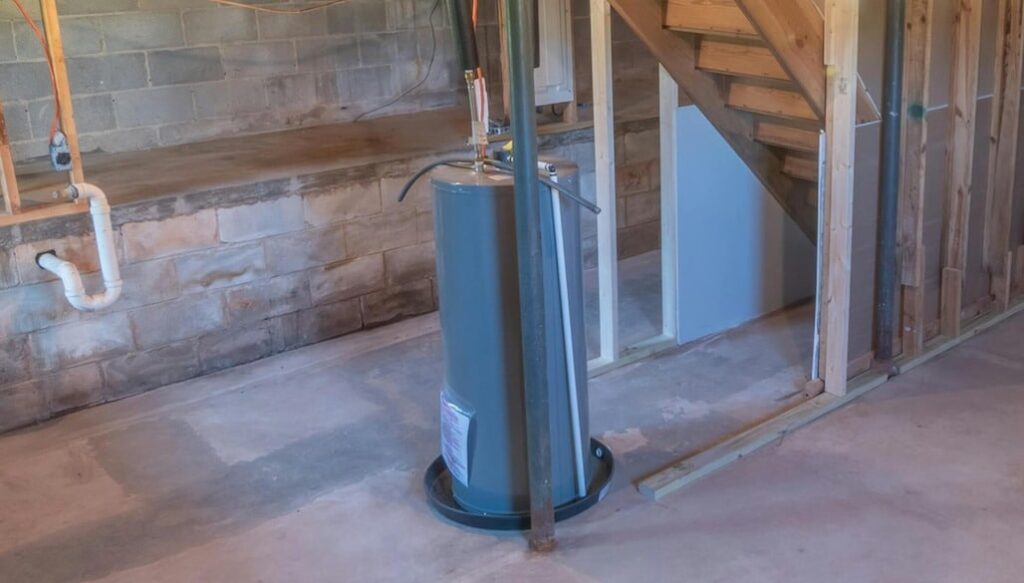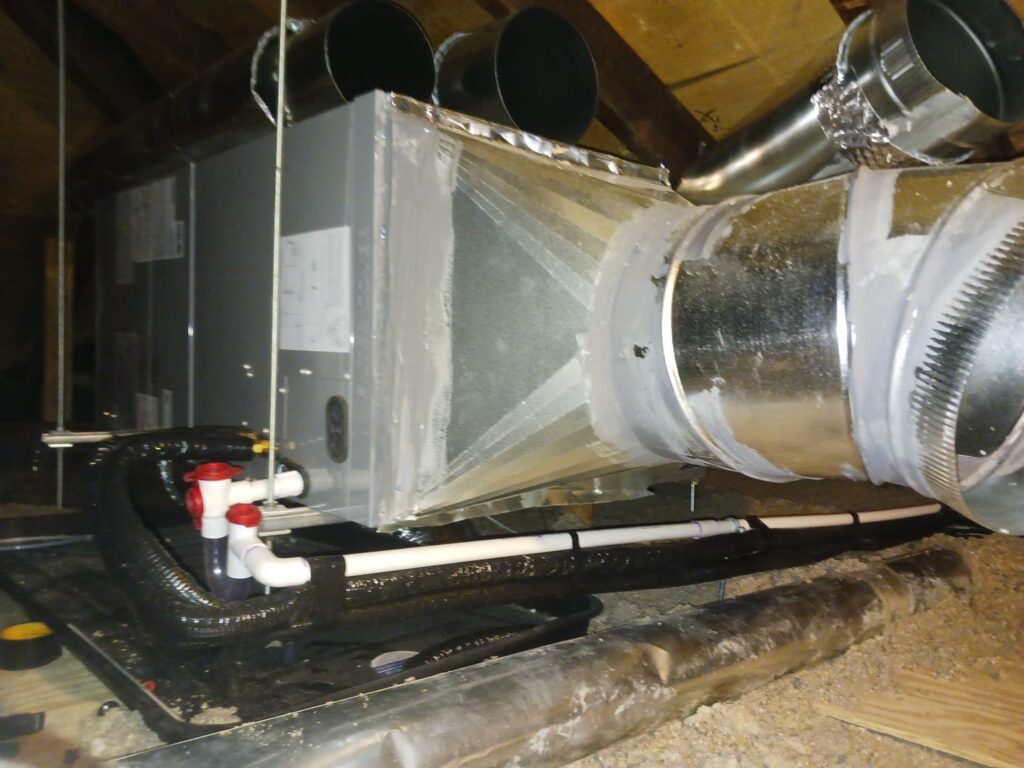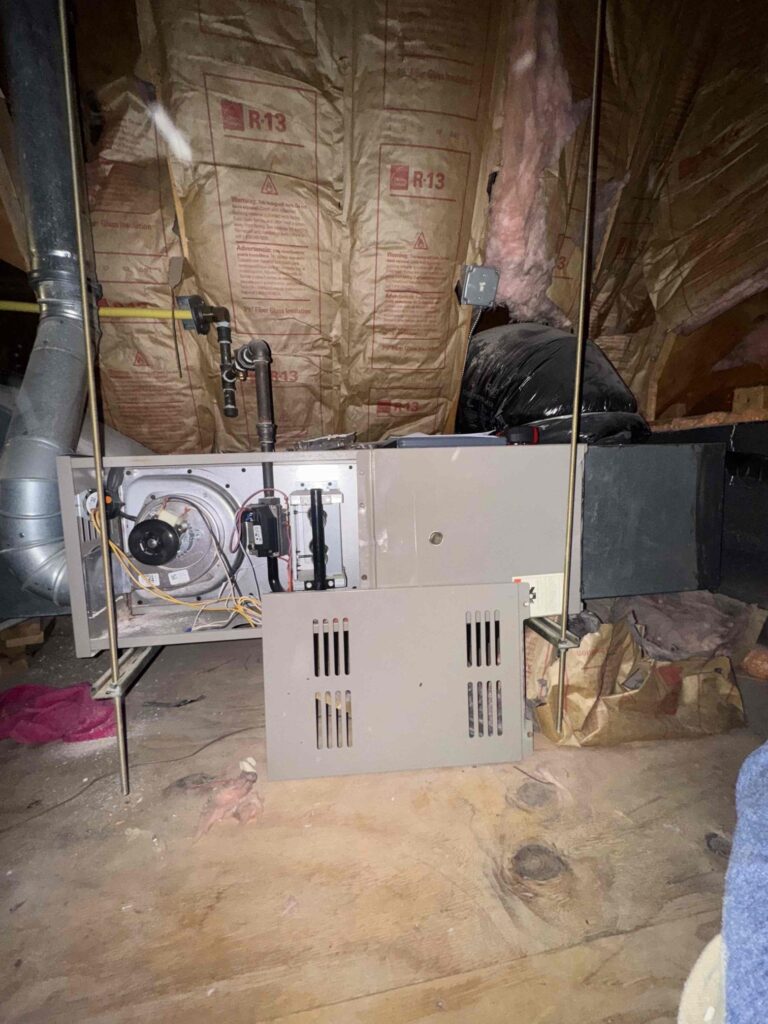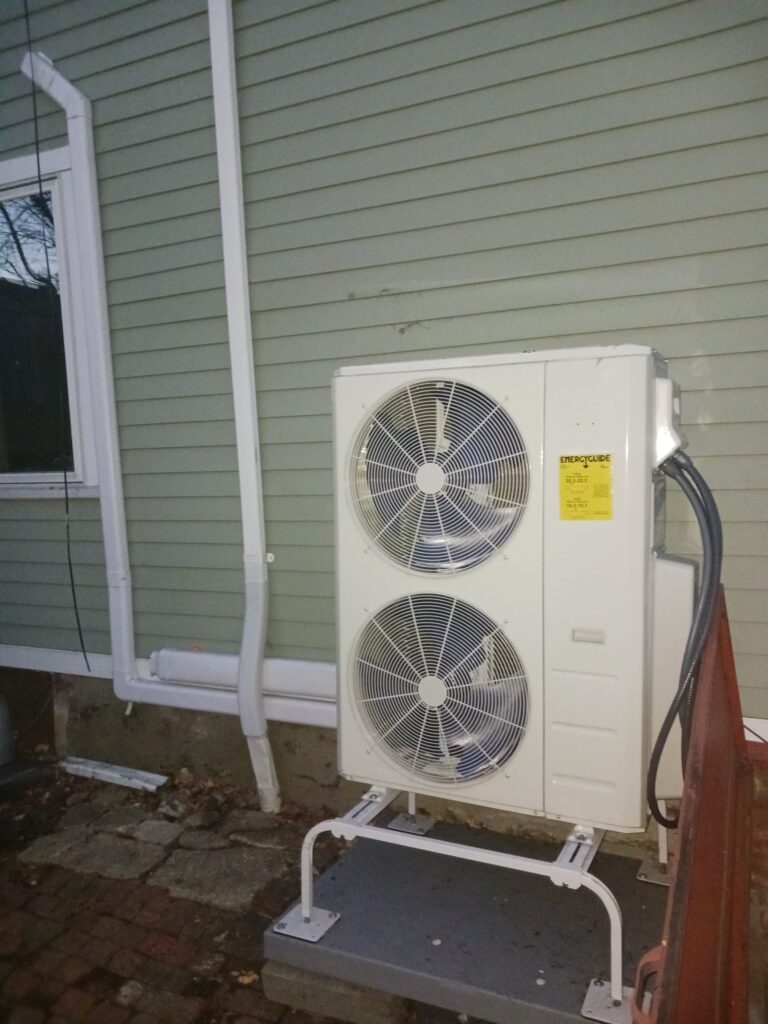How long do gas water heaters last? The International Association of Certified Home Inspectors says that the average lifespan of a gas water heater is around 10 years. But there’s a lot more to know when it comes to gas water heater lifecycles.
Today, we’re taking a closer look into the factors that affect the lifespan of gas water heaters, how to recognize when it’s time for a replacement and the best maintenance tips.
How Long Do Gas Water Heaters Last?
Gas water heaters are known for their reliability, but their lifespan can vary based on several factors. On average, a gas water heater lasts between 8 and 12 years. However, this range depends on usage, water quality, and the quality of the unit itself.
Three primary factors affect the lifespan of a gas water heater:
- Usage frequency
- Water quality
- Initial installation and unit quality
Usage Frequency
The more often a water heater is used, the faster it will wear out. Daily use puts a strain on the unit, leading to gradual deterioration over time. Households with larger families or higher hot water demands may find that their heaters need replacement sooner than those with lighter use.
Water Quality
Water quality plays a significant role in the lifespan of a gas water heater. Hard water, which contains a high level of minerals like calcium and magnesium, can lead to sediment buildup in the tank.
Sediment can reduce efficiency and cause the heater to overwork, ultimately shortening its life. Regular maintenance, such as flushing the tank, can help mitigate these effects, but poor water quality will still take a toll over time.
Initial Installation and Unit Quality
The quality of the initial installation and the unit itself are critical for long-term performance. A high-quality gas water heater installed by a professional will likely last longer and perform better.
Conversely, a poorly installed unit or one made from lower-quality materials may require replacement sooner. Investing in a reputable brand and ensuring proper installation can help extend the lifespan of your water heater.
Signs That It’s Time for Gas Water Heater Replacement
As gas water heaters age, they start to show signs that they’re nearing the end of their lifespan. Recognizing these signs early can help you avoid unexpected breakdowns and ensure you have hot water when you need it.
There are four main indicators that it might be time to replace your gas water heater:
- Inconsistent water temperature
- Rusty water
- Strange noises
- Leaks around the water heater
Inconsistent Water Temperature
One of the first signs that your gas water heater is failing is inconsistent water temperature. If you notice that your water isn’t as hot as it used to be or if the temperature fluctuates during use, it could be a sign that the heating elements are wearing out.
While this issue can sometimes be resolved with repairs, it often indicates that the heater is nearing the end of its life. If you frequently adjust the temperature or deal with cold water, it might be time to consider a replacement.
Rusty Water
Rusty water coming from your taps is another sign that your gas water heater might need replacing. Over time, the inside of the tank can start to corrode, leading to rust in your water supply.
If the rust is coming from the hot water side of your plumbing, it’s likely that the tank itself is deteriorating. Once corrosion starts, it’s usually irreversible, and replacing the unit is the best option to avoid further issues.
Strange Noises
As gas water heaters age, they often begin to make strange noises, such as popping or rumbling sounds. These noises are typically caused by sediment buildup at the bottom of the tank.
When the heater runs, the sediment can cause the tank to overheat, leading to these sounds. While flushing the tank can sometimes help, persistent noises usually mean that the heater is struggling and may need to be replaced.
Leaks Around the Water Heater
Leaks are a clear sign that your gas water heater needs immediate attention. If you notice water pooling around the base of the heater, it’s likely that the tank has developed a crack or other issue.
Leaks can cause significant damage to your home if left unchecked, so it’s important to address them as soon as possible. In most cases, a leaking tank means that it’s time for a new water heater.
Gas Heater Maintenance Tips to Extend Lifespan
Maintaining your gas water heater can significantly extend its lifespan. Regular care and attention can prevent common problems, ensuring that your heater works efficiently for years to come.
There are four primary maintenance tips to consider:
- Regular inspections
- Flushing the tank
- Checking the anode rod
- Adjusting temperature settings
Regular Inspections
One of the best ways to keep your gas water heater running smoothly is through regular inspections. A professional can spot early signs of trouble that you might miss.
During an inspection, the technician will check for leaks, examine the pressure relief valve, and ensure that the unit is venting properly. Regular inspections help catch small issues before they become costly repairs or replacements. If you schedule a check-up at least once a year, you can extend the life of your heater and keep it running efficiently.
Flushing the Tank
Sediment buildup is a common issue in gas water heaters, especially in areas with hard water. Over time, minerals from the water can settle at the bottom of the tank.
Sediment reduces efficiency and can lead to overheating, which strains the heater. Flushing the tank once or twice a year removes this buildup and helps your heater work more effectively. It’s a simple task that can make a big difference in how long your water heater lasts.
Checking the Anode Rod
The anode rod is a crucial part of your gas water heater. It attracts corrosive elements in the water, preventing them from damaging the tank. Over time, the rod itself corrodes and needs to be replaced.
Checking the anode rod every few years and replacing it when necessary can prevent rust from forming inside the tank. Simple maintenance steps can add years to the life of your water heater.
Adjusting Temperature Settings
Keeping your water heater at a lower temperature setting can reduce wear and tear on the unit. Most heaters are set to 140 degrees Fahrenheit by default, but lowering it to 120 degrees can help reduce energy use and extend the heater’s lifespan.
Lowering the temperature also reduces the risk of scalding and can save you money on energy bills. It’s a small adjustment that can have long-term benefits for both your heater and your home.
Common Water Heater Problems and Their Solutions
Gas water heaters can develop a range of problems over time. Understanding these common issues can help you address them before they lead to more serious complications.
Here are three common problems that gas water heaters often encounter:
- Pilot light issues
- Pressure relief valve leaks
- Thermostat malfunctions
Pilot Light Issues
One of the most common problems with gas water heaters is the pilot light going out. The pilot light is responsible for igniting the gas that heats the water, so your water heater stops working when it goes out.
This issue can be caused by a draft, a dirty pilot light, or a faulty thermocouple. In many cases, relighting the pilot light can solve the problem. But if it keeps going out, you may need to clean or replace the pilot light assembly. If the thermocouple is faulty, it will need to be replaced by a professional.
Pressure Relief Valve Leaks
The pressure relief valve is designed to release excess pressure from the tank. If it starts to leak, it’s usually a sign that something is wrong. The valve could be malfunctioning, or there could be too much pressure building up inside the tank.
It’s important to address this issue quickly, as excess pressure can cause the tank to rupture. If you notice a leak, try opening and closing the valve to see if it resets. If the leak persists, you’ll need to replace the valve or have a professional inspect the system.
Thermostat Malfunctions
A malfunctioning thermostat can cause your water heater to produce water that’s too hot or too cold. If you’re noticing that the water temperature is inconsistent, the thermostat may be to blame.
In some cases, you can adjust the thermostat settings to resolve the issue. But if the thermostat is faulty, it will need to be replaced. A professional can help diagnose the problem and install a new thermostat if needed.
Average Gas Heater Lifespan
So, how long do gas water heaters last? It often depends on recognizing signs of wear that can help you maintain your unit efficiently.
Since 1980, Endless Energy Endless Energy has offered stellar heating and cooling, plumbing, electrical, and insulation services in Massachusetts. We’re Mass Save certified, highly rated, and a family-run regional home services company. And we have an A+ Better Business Bureau score.
Get in touch today to find out how we can help with your gas water heater!






